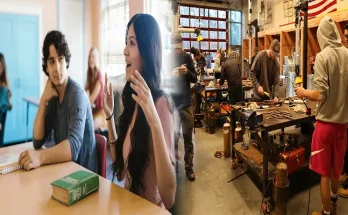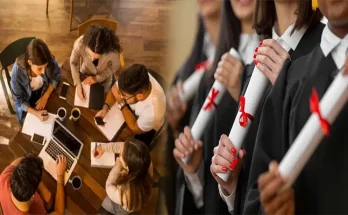As we enter the Connected Age, our education systems are increasingly falling short. We have carefully crafted and refined the education system, schools, vocational colleges and secular universities, but they are edifices of different age.
There are three reasons why I say so.
First, we have moved from time of information scarcity to information abundance. Today’s challenge is not to access information, but to check its credential and to be able to use it in context. But our prescriptive education is mostly about ‘knowing’ things rather than ‘discovery’. The school system is designed to discourage inventiveness and questioning. The students are still required to write memorized answers rather than Googling the facts and building independent or collaborative coursework.
Moreover, the education system today is built as Value Chain systems. The focus is on the Process, and the whole ideis to add value to student who turns up at the beginning of the semester so that she can meet the end-Semester requirements. But such standardized processes are, by definition, inflexible to accommodate diverse learning preferences of individuals. The mass produced education also discriminates against niche subjects and special interests. This education system fails to meet its societal need – because making accountants out of artists does not sound like smart ideany more.
Finally, today’s learners come to college after seeing computer at home for their entire lifetime, having their mobile phones since their school days and most, if not all, have their best friends on Facebook or Orkut. They come from the long tail world of endless, special, personal possibilities. So, the college, the classes, the tutorial batches are suddenly very alien to them. The only way education can become meaningful to today’s learners is by connecting back with life.
So, at one end, I hear the teachers complaining that students were texting or checking emails on their mobile while the class was on. I sat in school board meeting to decide whether students should be expelled from the class for using Facebook during the sessions. At the extreme end, there are complaints of abuse, disrespect, physical violence against the teachers. While this may be symptom of wider social dysfunction in some cases, these are also indicators that the education does not seem to be delivering value.
So, privatise! This is the modern perspective to solve the education problem. Privatize the whole system and watch the magic: suddenly, new shiny computers will transform the classroom and make it fun place. Modern, ready for Facebook generation. But most efforts in privatisation has not changed the system, they merely tried to improve it. The traditional value chain model was retained. The choice declined, with demands for more profitable courses crowding out the niche ones. The whole system resembled more like factory, with greater focus on process efficiencies.
But an alternative model of education is quietly emerging. This is model, which one would call Facilitated User Network. This is different from Value Chain, because, here, value does not reside in the process or the person, it resides in the Network. Like telecom network, where the network becomes more valuable with each new person connecting to it. Or banks, which recycle deposit as investment, and insurance companies, where one pays into the pool and dips into the pool when in need.
In the context of education, think this as chain of interconnected libraries with peer guidance and expert mentoring, but the learner decides what she wants to learn. The artificial limitations – you can’t enter the class because you are Fifty or did graduation in Sanskrit – will be gone.
If I want to train myself in psychology, I should be able to enroll tomorrow, regardless of my background or age or even physical location. Then, I should be able to access technology-facilitated learning which will guide me through the essential resources and allow me to do the coursework in the context of my life using the information I had.
I would learn to connect up with people across the world with similar interests and persuasion. I shall collaborate, connect and co-discover. That’s what our education system will look like. Soon.





